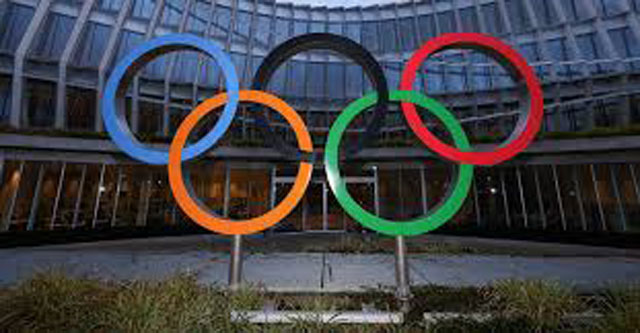News Flash

COSTA NAVARINO, Greece, March 18, 2025 (BSS/AFP) - The race to succeed Thomas Bach as the 10th president of the International Olympic Committee (IOC) reaches its climax on Thursday when the 100-plus members vote in the Greek resort of Costa Navarino.
AFP Sports picks out four notable former presidents:
Baron Pierre de Coubertin (FRA) 1896-1925
French aristocrat regarded as the founder of the modern Games, but like several of the presidents a disputed figure.
His detractors point out de Coubertin was -- in his own words -- a "fanatical colonialist" who believed the white race to be superior and who opposed women taking part in public sporting competitions.
Bach, though, said he should not be judged by modern-day standards.
"Every human has the right to be judged only and uniquely in the context of his time," the German said in 2024.
"I would like our visionary founder to be judged in the same way."
Avery Brundage (USA) 1952-1972
Brundage's far-right sympathies -- he made a pro-Nazi speech on his return from the 1936 Berlin Games -- overshadowed his career and life.
Germany was pivotal in his IOC career. He was elected a member in 1936 in Berlin and his term as president ended with the terror attack at the 1972 Munich Olympics.
Not many if any of his fellow presidents have made it into the pages of a fiction best-seller but a distinctly unflattering portrayal of his pro-Nazi sentiments at the 1936 Games features in "If The Dead Rise Not" by Philip Kerr.
As IOC president, Brundage strong-armed the US team to expel Tommie Smith and John Carlos from the Athletes Village following their black-glove salute at the 200 metres medals ceremony at the 1968 Mexico City Olympics.
Brundage termed the incident "the nasty demonstration against the American flag by negroes".
Shoot forward to Munich in 1972 and his behaviour over the massacre of 11 Israeli hostages by Palestinian terror group Black September drew controversy.
At a remembrance ceremony hours after the tragedy he decried the politicisation of sports, mentioning their murders alongside the battle he lost before the Games over wanting the Rhodesians to compete.
Despite protests by some Olympic officials and organisers, he uttered the words "the Games must go on!"
"I'll run, but I don't feel like running," said American marathoner Kenny Moore. "What's important after this?"
Lord Michael Killanin (IRL) 1972-1980
Brundage did not vote for the urbane Irish noble believing he lacked the intellectual heft to keep the Olympic movement healthy.
Killanin retorted that the IOC had been treading water for two decades under Brundage.
Despite Brundage's slight, Killanin had been considered smart enough to be part of the jaw-dropping challenge of planning the D-Day landings.
However, Killanin -- who was also a film producer behind John Ford's classic "The Quiet Man" among others -- was confronted with crisis after crisis in his eight-year tenure.
The 1976 Montreal Games were a financial disaster, and 22 African countries boycotted it owing to a New Zealand rugby tour of apartheid-era South Africa.
For the Winter Games that year Innsbruck had to be parachuted in as host city after Denver withdrew following a referendum. Then came the boycott of Moscow in 1980 by over 60 countries in response to the Soviet invasion of Afghanistan.
He was, though, responsible for the not inconsiderable achievement of bringing China back into the Olympic fold.
Unsurprisingly his health suffered and he had a heart attack in 1977.
Looking back he regretted political crises had dominated his tenure, time he would have preferred spent "updating the Movement."
Juan Antonio Samaranch (ESP) 1980-2001
The former sports minister under right-wing dictator Francisco Franco also had political crises to deal with -- most of the Eastern bloc boycotted the 1984 Los Angeles Games in retribution for the Moscow boycott -- but he found time to revolutionise the IOC.
Under his watch its financial fortunes soared thanks to TV rights and the programme for top sponsors created in 1985 whose aim is to generate diversified revenue to be shared in equal measure between the Organising Committees for the Olympics and the Olympic Movement.
The latter part of his reign was overshadowed by the gifts for votes scandal surrounding the winning bid for the 2002 Winter Games in Salt Lake City.
Although not technically illegal it gave the Olympic Movement a bad look. Six members were expelled and Samaranch oversaw the implementation of reforms that would prevent a repeat.
Samaranch admitted in 2001 the LA boycott and the Salt Lake City scandal were the worst "months and weeks of his presidency".
Nevertheless, for many observers, his legacy outweighs the scandal.
"His legacy is that we have an Olympic Games to talk about," former IOC marketing executive Terrence Burns told AFP.
"He saved it from financial and political ruin."